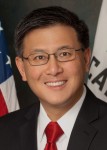Here’s one: California’s next governor is inheriting a debilitating housing crisis, an impending economic downturn, a rapidly changing climate and numerous underperforming schools.
There’s also this one: Gov. Jerry Brown is a tough act to follow.
A lot of other publications’ editorial boards started off their gubernatorial endorsements in one of these two ways. And they’re right in doing so: Brown has had a largely successful tenure, and California’s next governor is still going to be pulling out their hair trying to solve the state’s many problems.
But there’s something lawmakers, these publications and many of this year’s gubernatorial candidates seem to treat as an afterthought: higher education.
The University of California has been chronically underfunded by the state government, and Brown’s fiscal conservatism is largely responsible for the decline in UC students’ quality of education. Housing fees, class sizes and tuition have all risen because Brown and the Legislature thought it less important to support higher education in light of the state’s many other issues – despite the vital role the state’s universities play in social mobility and in bolstering the state’s economy.
One candidate has taken note of this: John Chiang.
Chiang’s meticulous understanding of policy issues and successful record as a responsible steward of the state’s finances as California state treasurer make him the ideal candidate to address the state’s higher education woes and succeed Brown.
This board is particularly impressed with Chiang’s clear proposals to improve higher education funding. While other candidates often pay lip service to the idea of increasing funding for the California State University and UC, Chiang plans to use his in-depth knowledge of the state’s resources to work to rollback recent tuition increases. In addition, Chiang has thoughtful ideas to help students with their loans and provide more financial aid support. These plans will no doubt take time to implement, but voters can be confident Chiang has the skills to lay the groundwork for more affordable university education.
Chiang’s work in the state government has also shown he is a capable leader with a consistent history of following through according to his values. During the 2008 financial crisis, when former Gov. Arnold Schwarzenegger tried to cut state employee salaries, then-California State Controller Chiang fought back, showing early on his commitment to ensuring workers’ livelihoods. And in 2011, Chiang tried to cut state legislators’ pay for not passing a balanced budget plan on time. Both these examples show Chiang can take strong and principled stances when necessary.
Unlike some of the other candidates in the race, such as Lt. Gov. Gavin Newsom and former Los Angeles Mayor Antonio Villaraigosa, Chiang is not a typical politician, and has not spent years campaigning and throwing around buzzwords to please the electorate. Instead, he’s a financially savvy state official who, while he hasn’t seen much of the limelight, knows California’s problems better than some of the candidates running for governor.
Chiang is a genuine candidate with fresh ideas and fact-driven solutions, both of which the state needs as it continues to pioneer progressive programs despite pressure from the federal government.
So yes, the next governor needs to be equipped for problems such as rampant homelessness and sky-high cost of living. But the head of the state must also understand the less politically appealing issues like higher education and know how to address them. Chiang, with his decades of public service taking care of the state’s finances, is best fit to do that.
